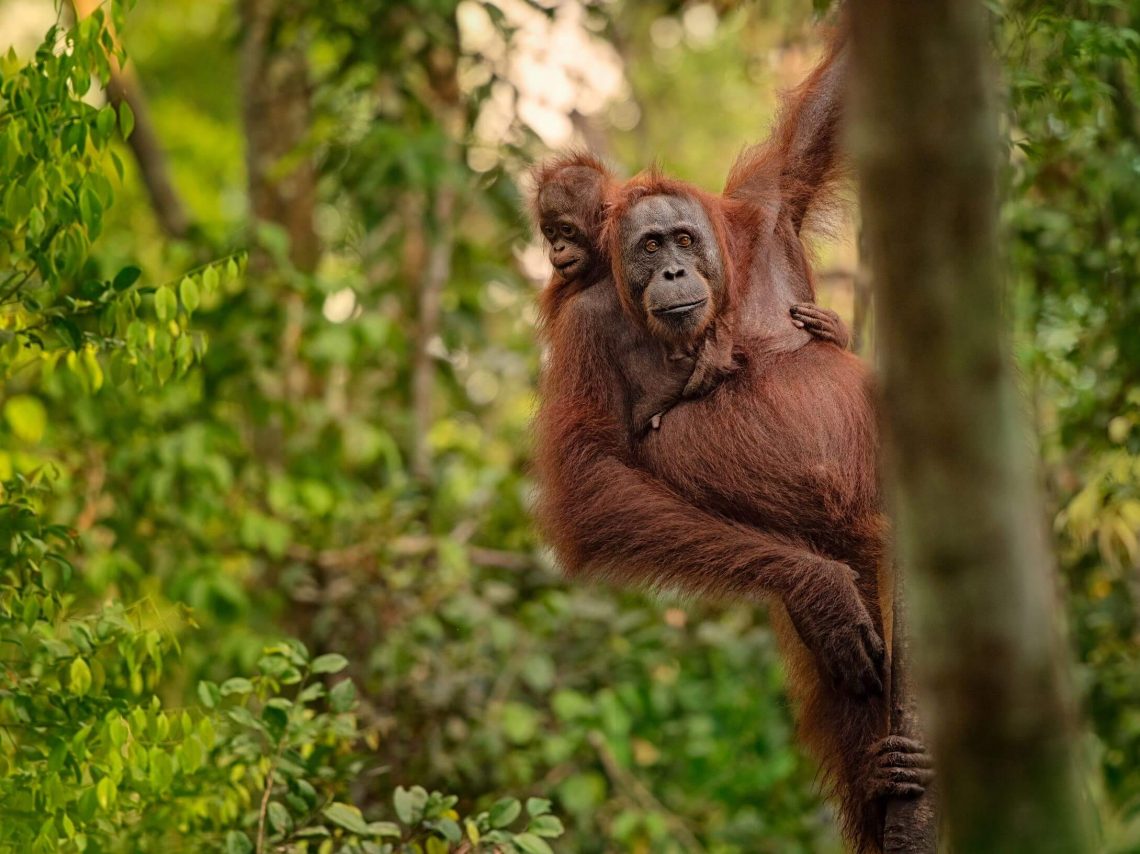
Habitat Fragmentation: Cracks in the Forest
What is Habitat Fragmentation?
Picture This…
Picture the town where you live. Which areas do you rely on? Where do you need to go? Who do you need to get to?
Now imagine that someone decides, without consulting you, to build a giant, impenetrable wall right through the middle.
Hmm. That wasn’t ideal…
But that, in essence, is the problem of habitat fragmentation.
The Reality…
Humans have a habit of building stuff (I touched on this in 7 Reasons Why Britain Needs Nature).
This might be nice for humans but it will always come at a cost to the environment. Habitat fragmentation is one of those costs.
As we build roads, farmland, towns and cities, we divide up the landscape, and every time we do, it’s as if we are building that impenetrable wall through the habitat of wild animals.
As a result, we might cut of food and water sources for some individuals, reduce territory or divide families.
We might limit the number of individuals who can mate with each other- we call this “reducing the gene pool” and that is bad for the species as a whole (think increased levels of incest and what that means).
We almost always decrease biodiversity in certain areas (check out my first post on rewilding if you’re unsure on what this means).
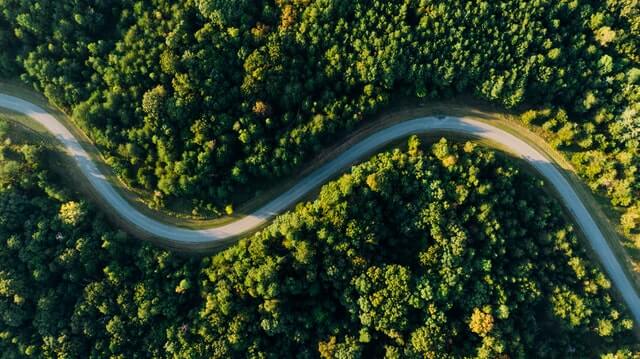
How are Orangutans Affected by Habitat Fragmentation?
Palm Oil
There are plenty of threats facing orangutans (the Orangutan Foundation explains these really well if you’re interested in those) but we are going to focus in one just one: palm oil.
You have probably heard of palm oil by now. If you live in the UK, perhaps it was down to the successfully controversial Christmas campaign from Iceland supermarket (you can remind yourself of it here). It was banned for breaking rules on politics in advertising and was taken off air, but in doing so probably attracted more attention.
The baby orangutan in the video explains that humans “destroyed all of our trees for your food and your shampoo”.
The baby orangutan was right- palm oil is just a vegetable oil from the fruit of a species of palm tree. It is used in food and cosmetics and cleaning products.
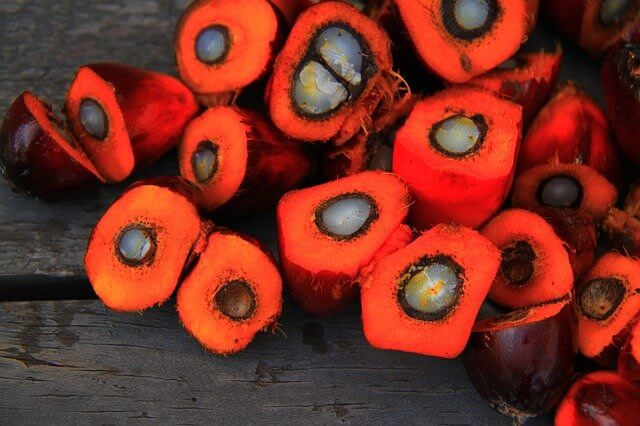
Why is the Demand so High?
There are two reasons demand for palm oil is so high:
- It’s really economical and efficient to grow and compared to other oil crops. This means farmers can make more of it per square meter and therefore make more money from their land than they can with other crops.
- It’s healthier than other oils used in food (it’s still a saturated fat though so it’s not exactly a health food either).
That Sounds Good! What’s the Problem?
The problem is that these huge palm plantations need somewhere to go. To make space, the rainforest comes down.
Large areas of forest are felled to make space to farm.
But that forest was the habitat for loads of animals.
The Curse of Monocultures
You might think that replacing trees with trees is harmless, but it is far from it.
Farms produce what we call “monocultures”- one single species of plant grown over and over again. Compare that to the rainforest where tens or even hundreds of species of plants could share the same small area of land.
Monocultures don’t provide many roles for animals to fill, or “niches” as we call them in biology. The don’t provide a range of food to eat. There aren’t many hiding places so prey is limited. They allow only one food source for herbivores- if you don’t eat that you’d better go elsewhere.
And really, when you think about it, you just don’t picture an orangutan in a palm tree, do you?
These palm plantations break up, or fragment, the forest into pieces that the apes can’t necessarily move between. We have already mentioned the problems this brings!
When Humans Arrive
With the plantations comes humans, and with humans comes infrastructure.
To farm the land, machinery and transport needs to be able to move in and out. That means building roads. Roads are dangerous to animals and result in deaths. If animals cannot cross, they may be cut off from vital parts of their habitat.
Fires can be used to clear the land and sometimes they spread. It also leads to air pollution which is bad for humans and wildlife alike.
It’s Not Just Orangutans
Orangutans are critically endangered and in desperate need of human intervention if they are to be saved. However, they are also used as a bit of a poster child for the cause.
Orangutans are majestic and loveable, and their human-like characteristics make them relatable. To see them suffer tugs at our heart strings. They front the campaign to save the forests that are also home to so many other species.
Child labour is also a problem in the industry.
Palm oil might appear to be all about orangutans, but there is so much more at stake.
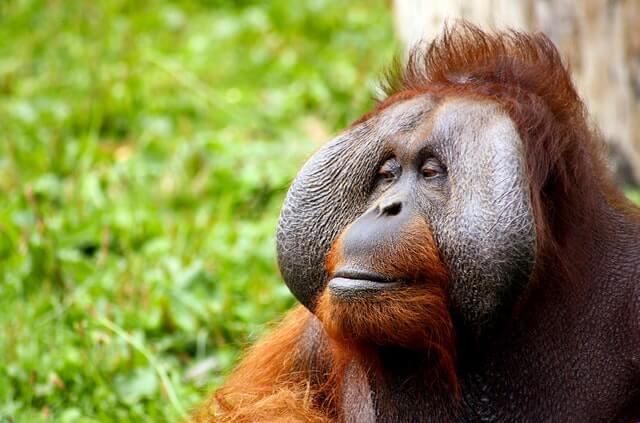
One Wild Thing
This week: a challenge.
It would be very difficult to cut palm oil out of our lives completely. We probably wouldn’t want to all at once- the livelihoods of people in some of the more poverty-stricken areas of the world depend on it. But we can increase our awareness of its effects and make small changes to our lives that might reduce its impact.
My challenge to you this week is to find three items you regularly buy and see if you can find a palm oil free or sustainable palm oil alternative for each.
Ethical Consumer has put together a guide to some of the most common products containing palm oil with some palm oil free alternatives.
There are a few things to be aware of before you begin:
- It is easier to find out if food contains palm-oil than cosmetics. This is because EU law states that food MUST be labelled if it contains palm oil*.
- In cosmetics, it may not be listed as palm oil on the label. There are around 500 separate ingredients that contain palm oil which makes it hard to identify from a list, however, you can look for “palm”, “stear”, “glyc” and “laur” appearing in a name as an indication that an ingredient might contain palm oil.
- Boycotting isn’t always best. The WWF set up a group called the Roundtable on Sustainable Palm Oil (RSPO). This provides a set of criteria that the supply chain must meet to achieve RSPO certification which aims to ensure that the oil is being produced sustainably.
Be aware, boycotting palm oil could mean that alternative, less efficient oil products could be grown in their place. These could be larger, more damaging monoculture plantations than the palm. People also rely on palm oil for their livelihood.
The RSPO certification is a great way of finding a sustainable alternative products. It’s not without it’s problems but all of these small steps help.
If You’re Struggling
If it’s proving difficult to make swaps:
- Shop at Iceland supermarket where all products are palm oil free.
- Shop at Marks and Spencer where products should only contain RSPO certified palm oil.
Good luck and let me know how you get on with your swaps to fight habitat fragmentation in the jungle.
*UK residents- this law currently still applies in the UK at the time of writing in 2020 but could change any time in a post-Brexit world. I am not specifically aware of laws in any other parts of the world.




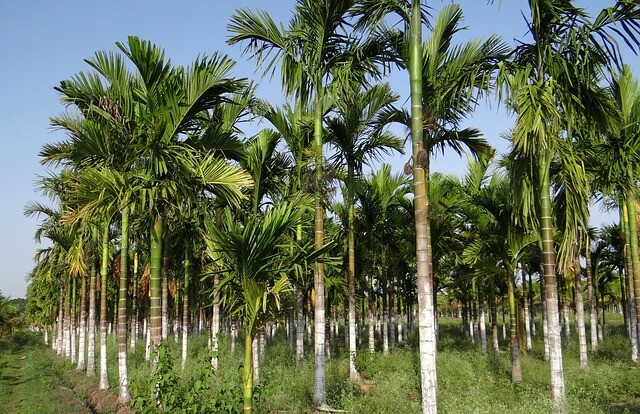
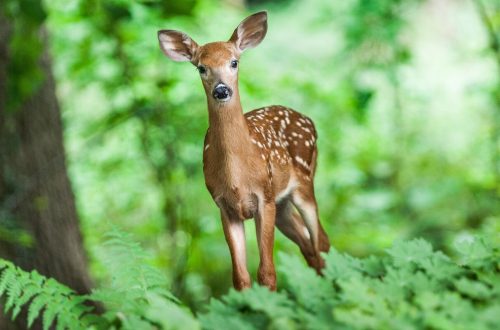

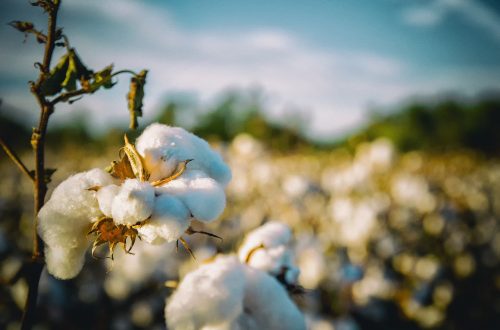
7 Comments
michelle desilets
Conservation organisations are in agreement that a blanket boycott of palm oil, or palm-oil free products is no solution for the impacts on orangutans and their rainforest. Better to demand sustainable, deforestation-free palm oil and play a part in driving the transformation of the industry on the ground.
Have a look: https://youtu.be/AMS9wTcPQ2M
lenew_21
Thanks so much for your thoughts!
At present I would tend to agree as I fully recognise that the alternatives are often far worse and the demand will still be there. To me I wonder if in the long term, however, we need to look at how we consume goods like this as such high dependency on a single product seems to me to be ultimately very difficult to make fully sustainable. I have no idea how reducing this demand (especially here in the west. I live in the UK) could be achieved but we have plenty of innovative minds in this world!
Thanks for reading and for the information!
Pingback:
Pingback:
Pingback:
Pingback:
Pingback: